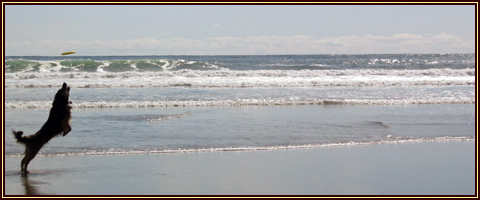3 Methods To Stop Separation Anxiety in Dogs
If you’re on the lookout for a cure to your dog’s separation anxiety, there are a range of approaches you can take. Some will give you more instant results than others, while other approaches may bring more long lasting benefits.
Dog Anxiety Medicines
One route to curing separation anxiety in dogs is to use some form of medicine, starting from non-prescription herbal cures, to prescription medications, and other mood altering products.
Anti-anxiety drugs are only recommended in severe cases of anxiousness and will have to be be prescribed by your vet. They can take two weeks to get to the right levels and work best, usually must be given daily, and need to be thoroughly monitored as there may be side effects.
There are a number of non-prescription drugs which have been developed to help calm and ease dogs with anxiety. They are put forward as safe, non-addictive and natural treatments and are supposed to cut out acute feelings of fear and nervousness. They can be purchased over the counter or on the internet and generally come in straightforward to administer, liquid or granule form.
Another product designed to reduce a dog’s stress is a treatment that works by exposing them to a synthetic copy of the pheromones produced by a lactating female dog, which would naturally calm her puppies. The pheromones are introduced to the air via a diffuser, which works like a plug in air spray. It is odourless to us and is said to be a natural solution that should not have a sedative effect on the dog.
Distraction Strategies
Distracting methods are often used to either stop a dog’s anxious feelings from developing, or reducing it’s force.
These methods include:
- Walking your dog prior to going out – because it’s believed a worn out dog is more inclined to sleep and less likely to be fretting about where you are.
- Feeding your dog – because a dog with a full and satisfied stomach is less likely to be anxious.
- Using exciting toys – because playing with their favourite toys will occupy them.
- Leaving the TV or radio on – as the noise will be comforting.
- Leaving your dog with an old jumper of yours – because having the ability to smell you will be comforting for them.
Dog Separation Anxiety Training
A training course specifically geared towards dogs with separation anxiety is often advised by veterinarians. This could either be used alone, or alongside medication or other products.
The training should aim to modify a dogs behaviour especially in relation to the triggers to their anxiousness, this is frequently referred to as de-sensitisation training. It should also help you gradually increase the length of time you spend separated from your dog, and teach you the best way to leave a stressed dog and what to do when your return.
Selecting A Strategy to Suit You and Your Dog
While medicines or distraction techniques may reduce symptoms and help your dog handle the initial issues of separation anxiety, they’re unlikely to remove the problem alone. Both techniques are likely to need the addition of training to deliver a long term solution.
Whichever decisions you take to curing your dog’s separation anxiety, it is going to take time, patience and persistence on your side, because dogs learn at different speeds. There’s no instant magic wand and don’t believe anybody that tells you there is.
Author Venice Marriott is a writer, dog owner and runs a Dog Anxiety website, which provides help and information for owners coping with dog anxiety. You’ll get more information about dog separation anxiety cures, when you come to the site.







